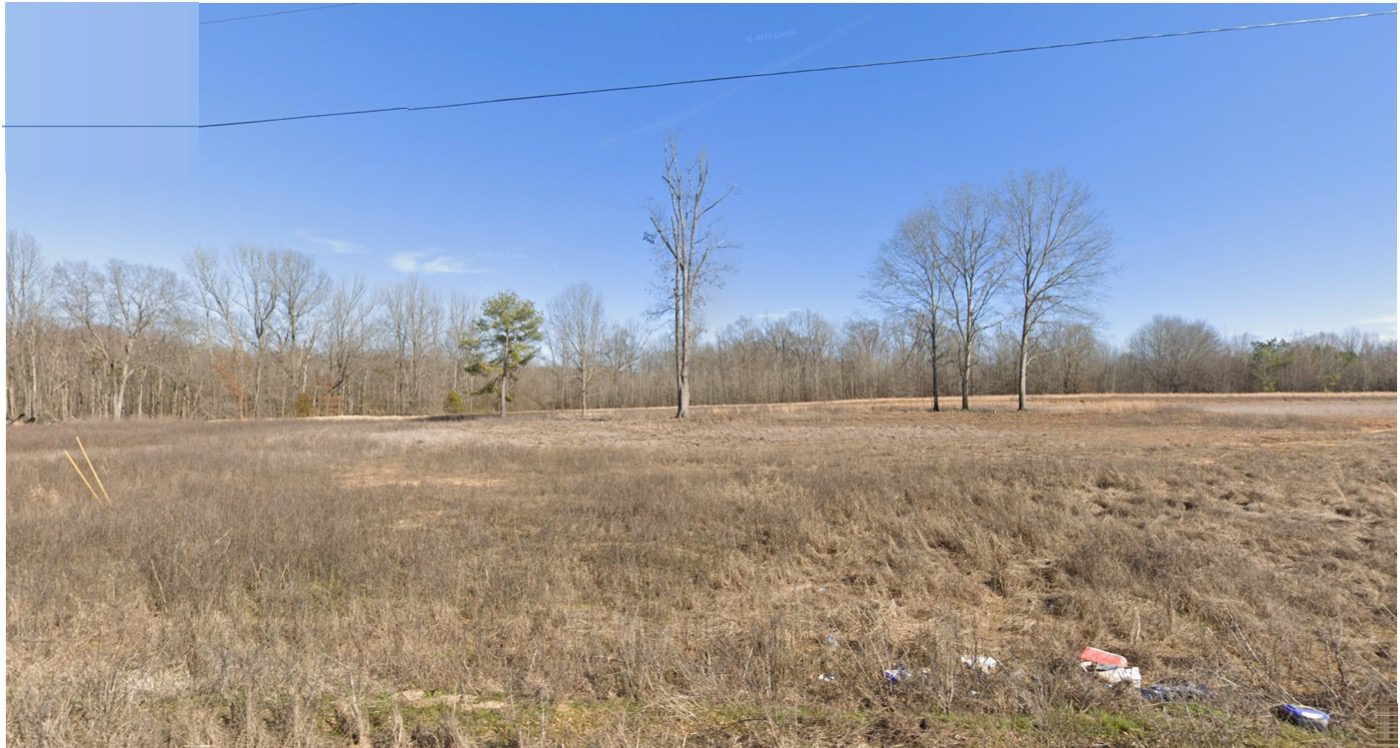The Investor Landscape in California
California is one of the most heavily regulated states for landlords and property investors. While cash flow and long-term appreciation have historically attracted buyers, many small and mid-sized investors have found that new laws at the state and municipal levels subject them to risk that did not previously exist. While these policies may be well intentioned, aiming to increase housing affordability and to create tenant protections, in practice they increase the cost of investing in these properties by way of compliance with these laws and defending lawsuits arising from allegations of non-compliance.
 San Diego attorney Jon Alan Enochs has spent years helping property owners navigate this environment. His message is clear: an instrument used to achieve goals and objectives, not a dispenser of justice. He stresses that California’s regulations increasingly favor institutional investors relative to small entrepreneurial investors. Institutional investors typically have deeper pockets and a better ability to afford litigation and compliance costs. For individual owners, the economics are becoming more challenging every year.
San Diego attorney Jon Alan Enochs has spent years helping property owners navigate this environment. His message is clear: an instrument used to achieve goals and objectives, not a dispenser of justice. He stresses that California’s regulations increasingly favor institutional investors relative to small entrepreneurial investors. Institutional investors typically have deeper pockets and a better ability to afford litigation and compliance costs. For individual owners, the economics are becoming more challenging every year.
“Treat the legal system as an instrument, not a dispenser of justice.”
California’s framework now includes statewide rent controls, just-cause-no-fault eviction rules and city-specific overlays that vary from municipality to municipality. By way of example, failure to follow exact notice requirements or relocation assistance rules can expose owners to fines or lawsuits. As Enochs explains, one cost investors frequently fail to consider is the cost of defending the case. There is a difference between the merits of a landlord’s defense to a case and the economics of the defense. As is often the case, many residential tenants simply lack the financial ability to reimburse the landlord for the landlord’s attorneys’ fees assuming the landlord is entitled to them and the landlord prevails on the underlying case. Conversely, landlords are frequently in a better financial position than the tenants which makes them attractive targets to attorneys’ representing residential tenants. In short, even winning a case could be costly.
Many California owners don’t realize that by keeping a property as a rental, they’re stepping into one of the most heavily regulated markets in the country. What seems like a straightforward decision can become a high-risk liability.
Practical Advice for California Landlords
Enochs offers specific steps for investors who already own or are considering property in California. His framework is built on cost-benefit-risk analysis: every decision should be weighed in terms of its potential return, cost of compliance, and risk of litigation.
Before buying or inheriting a rental, investors should:
- Audit tenant files to determine if there are regulatory compliance issues. This would include looking at leases, amendments leases, disclosures, and required notices, relocation assistance, etc.
- Confirm which layers of law apply, including state, county, and city ordinances.
- Understand eviction pathways and prerequisites to doing so
For current owners, proactive compliance is critical:
- Conduct legal audits periodically to confirm all notices and documents are up to date.
- Remediate any missing forms or outdated disclosures.
- Hire a property manager who understands requirements under local law and whom carry errors and omissions insurance.
- Maintain clean, chronological records of all tenant communications.
Enochs also emphasizes the importance of pragmatism. Options like cash-for-keys may make more sense than lengthy disputes. Lawsuits should only be pursued when there is no quicker and less expensive alternative. “Don’t sue for money you can’t collect,” he advises. This approach requires discipline but protects investors from spending money in pursuit of of money they are unlikely to collect.
Another issue in California is the growing role of Accessory Dwelling Units (ADUs). While intended to increase housing supply, ADUs are driving higher density in single-family neighborhoods, leading to disputes over infrastructure, drainage, and neighborhoods. Investors must consider not only the economics of their own property but also how policy-driven density may affect long-term neighborhood desirability.
Why Many Investors Are Redeploying Capital Outside California
For some investors, the compliance strategy works. They budget for legal costs, maintain strict discipline, keep meticulous records, and manage risk. For others, especially those looking for predictable cash flow, the smarter choice may be to sell California holdings and reinvest in landlord-friendly markets.
Tennessee and Mississippi stand out as two compelling alternatives. Both states have no rent caps and a landlord-friendly legal framework. Tennessee also has no state income tax, while Mississippi offers a straightforward regulatory environment that reduces compliance risk. Together, these conditions create stability and protect investor returns. The result is that investment properties in Tennessee and Mississippi have stronger rent ratios than investment properties in California.
Within the Memphis metropolitan area, the suburban submarkets—such as Oakland, Olive Branch, Walls, and Horn Lake—offer particular strength. These communities combine new-construction homes, strong schools, and growing populations with steady rental demand.
National data underscores the opportunity: institutional investors are already active in Memphis, recognizing its affordability, logistics-driven economy, and reliable tenant base. For individual investors, the combination of suburban stability, economic growth, and favorable landlord laws makes the Memphis MSA one of the most attractive places to invest.
Selling a single California property can often provide the capital to purchase several investment properties in the Memphis market, and with smart financing, investors can better leverage their assets and increase overall returns. For many investors, it is not just a better investment but a better experience.
By diversifying across multiple properties rather than holding a single high-value home, investors can improve their risk profile and create a more stable income stream. With appreciation in areas like San Diego County tracking closely to Memphis over the past two decades, the real advantage lies in cash flow and scalability—out-of-state markets like Memphis simply offer stronger long-term profitability.
A Strategic Opportunity for Investors
California’s regulatory environment is not likely to change direction soon. The trajectory of housing legislation suggests the state will continue to expand tenant protections and litigation risks will increasingly squeeze smaller investors out of the market. For many, selling California properties and reinvesting in Memphis offers lower risk, stronger cash flow, and long-term stability.
Meridian Pacific Properties specializes in guiding investors through this transition. Rather than simply selling investment properties, Meridian builds long-term strategies tailored to investor goals. This includes educating clients about the realities of California ownership, introducing alternative markets like Memphis, and delivering turnkey single-family rental properties that are fully-managed and compliance-friendly.
Our role is not just to sell a house—it’s to give investors a comprehensive plan to build wealth through real estate. By working alongside trusted professionals like real estate attorneys and 1031 Exchange specialists, we help our clients realize their full financial potential.
Meridian Pacific Properties provides strategy, education, and a turnkey investment experience. By combining professional support with premium investment properties, Meridian helps investors protect their capital and achieve stable, passive income steam.
In California, the risks are rising. In Memphis, you can own premium, professionally managed homes in strong neighborhoods that deliver steady income without the constant legal exposure.
The investment properties we build are premium new construction, professionally managed, and located in carefully selected communities. Our turnkey model allows investors to scale their real estate portfolio while avoiding compliance burdens and risks. We use a streamlined business model, exceptional local property management, and an extensive team of trusted professionals to mitigate risk for our clients.
Risk Evaluation for California Investment Properties
We encourage you to reach out to Jon Alan Enochs or another trusted real estate attorney for a risk-evaluation of your California investment properties. Once you know where you stand in today’s regulatory environment you can consider whether it would be a strategic benefit to reinvest out-of-state or to stay the course while being extremely mindful of litigation.
Using a 1031 Exchange to Defer Capital Gains Taxes
One of the most powerful tools available to real estate investors is the 1031 exchange. This IRS program allows you to sell an investment property and reinvest the proceeds into another “like-kind” property without immediately paying capital gains taxes. By deferring those taxes, investors keep more capital working for them, which can accelerate portfolio growth and wealth building over time.
The advantages go beyond tax savings. A 1031 exchange provides flexibility to rebalance a portfolio—whether that means moving out of low-yield or high-risk markets, consolidating into fewer properties for easier management, or diversifying into multiple newer homes to reduce risk. The compounding effect of deferring taxes and reinvesting larger sums can significantly increase long-term returns.
Of course, a 1031 exchange requires discipline. Investors must identify replacement properties within forty-five days of selling and close within one hundred eighty days, with funds held by a qualified intermediary throughout the process. Missing these deadlines or choosing poor-quality replacements can result in a failed exchange and unexpected tax liability.
That’s why partnering with a team experienced in 1031 exchanges is essential. Meridian Pacific Properties works closely with trusted intermediaries and real estate attorneys to help investors navigate the process. By providing a pipeline of premium, turnkey single-family investment homes in the Memphis metropolitan area and Northern Mississippi, MPP ensures that investors have access to high-quality replacement properties that meet IRS guidelines and deliver steady cash flow.
For many California owners, selling one property and using a 1031 exchange to purchase multiple homes from Meridian is a strategic way to reduce risk, increase income, and take full advantage of the tax deferral benefits.
Other Highly Regulated States: What Landlords Face
While California often takes headlines for restrictive landlord-tenant laws, several other states enforce dense regulatory regimes that add cost, risk, and complexity for property investors.
New York (rent control & stabilization)
- In New York City and several municipalities, many apartments fall under rent stabilization or rent control. These regimes limit how much landlords can raise rent annually and regulate when a landlord can evict a tenant. Landlords must often petition regulatory boards for rent increases and may be denied if building violations or expenses don’t justify the hike. In 2025, the New York City Rent Guidelines Board approved increases for rent-stabilized apartments—up to 3% for one-year leases and 4.5% for two-year leases. Eviction rules also require “just cause” in many stabilized units, with lengthy notice periods and strict procedures.
Massachusetts and Oregon (rent control & eviction rules)
- Both Massachusetts and Oregon impose strict tenant protections. Rent increase limits, anti-retaliation provisions, and extended notice periods make it harder for landlords to maintain profitability. In some cases, landlords are required to pay relocation assistance if tenants are displaced.
Illinois (security deposits & tenant rights)
- Illinois law requires strict handling of security deposits, detailed disclosures, and repair obligations that heavily favor tenants. Landlords who miss deadlines or fail to comply with technical requirements risk penalties that exceed the deposit itself.
Florida (local ordinances & relocation rules)
- Florida is often considered landlord-friendly at the state level, but certain counties and cities have adopted local ordinances requiring longer notice periods, relocation payments, or additional tenant protections beyond the state baseline.
Each of these environments forces landlords to budget more for legal compliance, maintain rigorous documentation, and accept slower turnover and higher risk of disputes. For investors evaluating where to deploy capital, understanding these regulatory burdens is as critical as market rents or appreciation trends.
The Punchline: Protecting Wealth, Growing Smarter
The reality is clear: California’s investment landscape has become increasingly complex, burdened with regulations that raise risks and erode returns. For many investors, the smarter long-term move is to redeploy capital into markets that offer stronger cash flow, more stability, and fewer legal obstacles.
Tennessee and Mississippi—especially the suburban submarkets of the Memphis MSA—stand out as prime alternatives. These communities provide affordable, new-construction homes with steady rental demand, supported by a landlord-friendly framework. Add in the power of a 1031 exchange, and selling one California property can often open the door to multiple higher-performing investments elsewhere.
The next step is about clarity: evaluate the true risks in your California holdings, understand your options, and build a strategy for redeployment. With the right planning, expert guidance, and carefully selected properties, investors can protect their capital today while positioning for long-term wealth tomorrow.
About Real Estate Attorney Jon Alan Enochs
Enochs is an experienced real estate attorney with more than 25 years of practice, specializing in real estate litigation. With a professional background that began in collections and banking, Alan brings a unique understanding of both financial systems and property law.
He is deeply supportive of entrepreneurs and real estate investors, focusing on practical, cost-effective strategies to help clients achieve their goals while minimizing legal and regulatory risks.
Drawing from his extensive experience in California, Enochs emphasizes the importance of understanding the growing regulatory challenges that impact property rights and investment returns. His advice to investors is simple but essential — know the laws, measure the risks, and ensure that every deal’s potential reward justifies the cost and compliance required.
Sources
https://semiretiredmd.com/the-downsides-of-buying-rental-properties-in-california-why-you-might-want-to-think-twice
https://www.teamblind.com/post/warning-think-twice-about-investing-in-real-estate-rentals-in-california-0gamylum
https://nypost.com/2025/09/05/real-estate/mega-investors-are-snapping-up-properties-in-these-popular-metros
https://www.newbierealestateinvesting.com/best-states-to-buy-rental-property
https://odsonfinance.com/four-major-benefits-of-investing-in-out-of-state-rentals
https://www.mashvisor.com/blog/best-states-to-buy-investment-property
https://chordrealestate.com/blog/why-tennessee-the-benefits-of-lower-taxes-and-fewer-regulations-for-californians
https://www.kiplinger.com/state-by-state-guide-taxes/tennessee
https://www.businessinsider.com/best-worst-states-save-money-cost-of-living-taxes-2025-5
https://en.wikipedia.org/wiki/Memphis%2C_Tennessee
https://nypost.com/2025/06/30/us-news/nycs-rent-guidelines-board-approves-hike-for-rent-stabilized-apartments-by-up-to-4-5
Please Share This Article
If you enjoyed this article, please share it. We appreciate your support and referrals.
Talk To The Author
Brian Conlon is the Director of Business Development at Meridian Pacific Properties. With years of experience in real estate investing and turnkey property management, Brian specializes in helping investors optimize cash flow, plan for long-term property performance, and navigate the complexities of real estate investing.
Schedule a consultation with Brian to learn more about investing in SFR investment properties.







